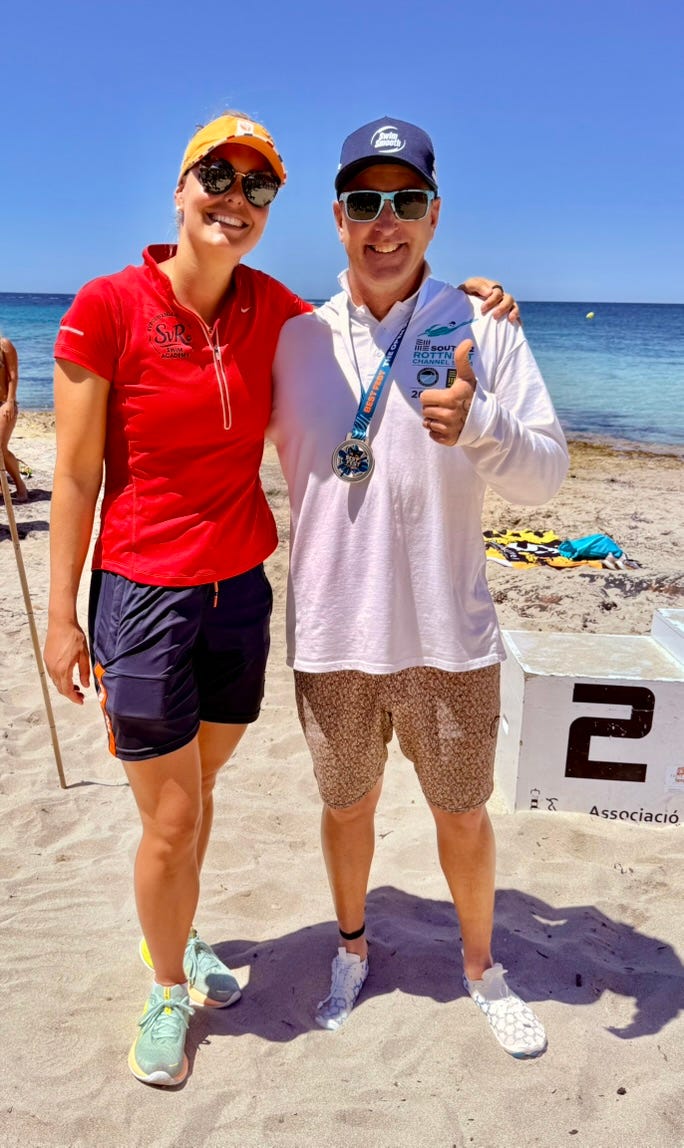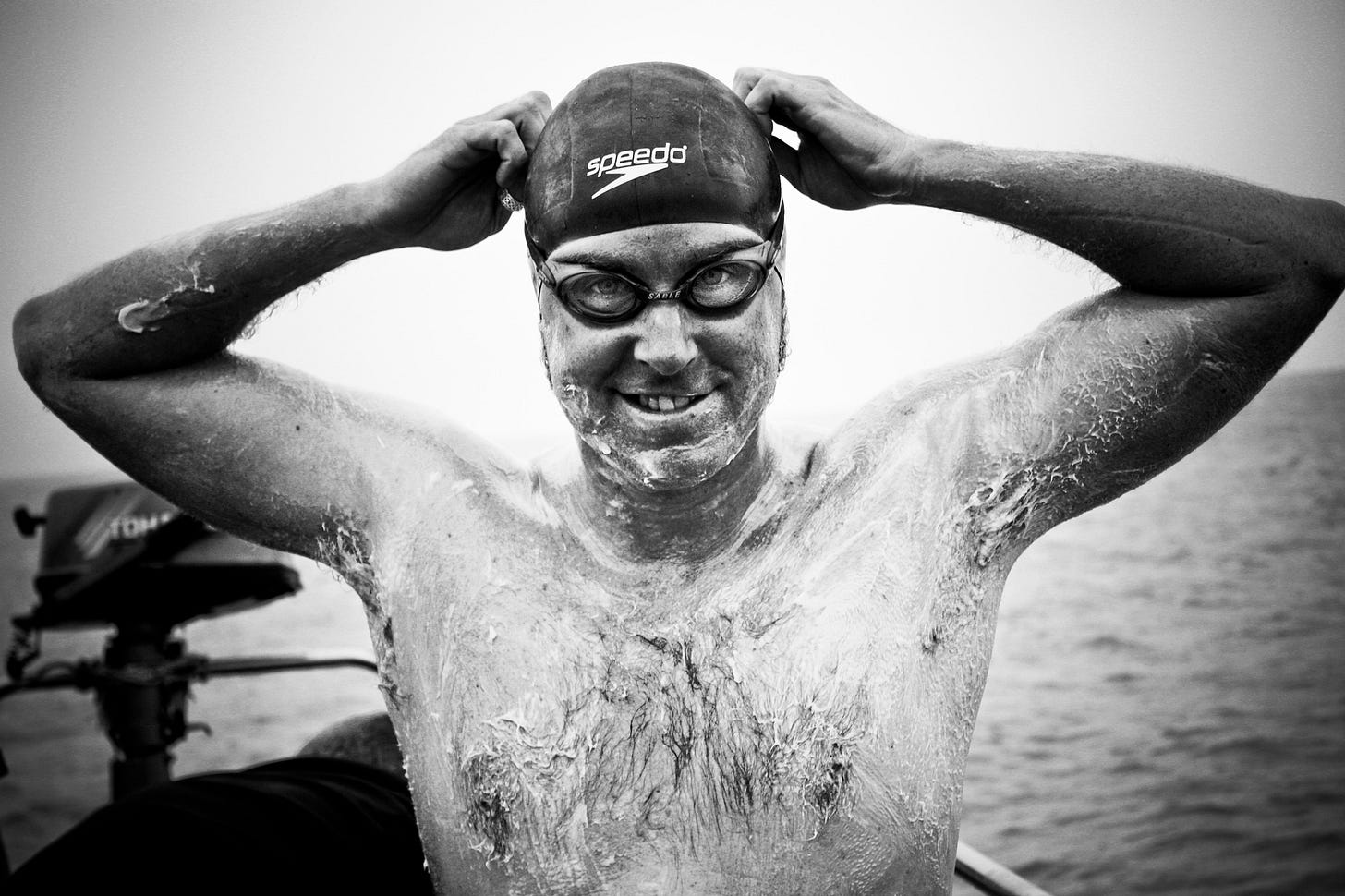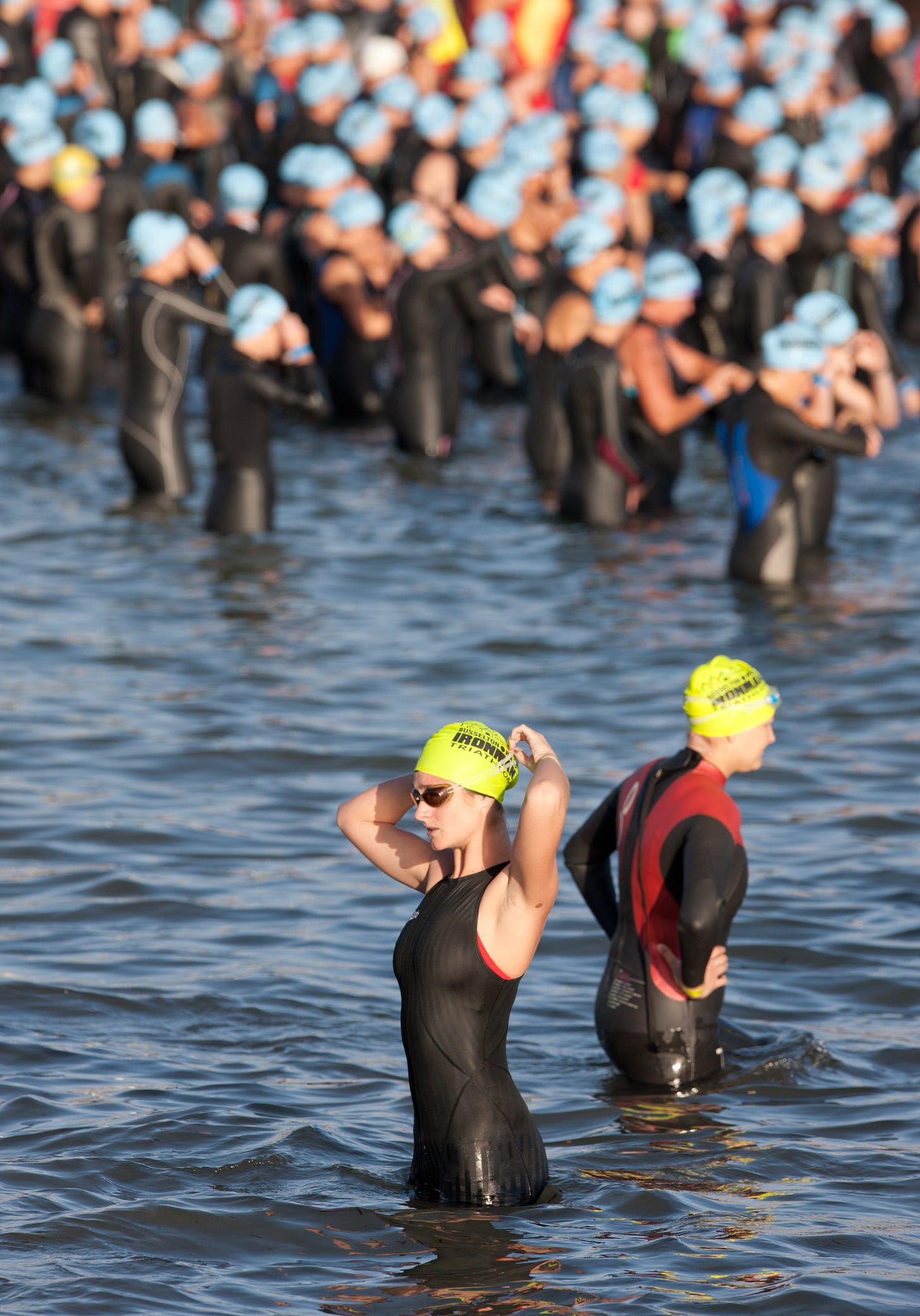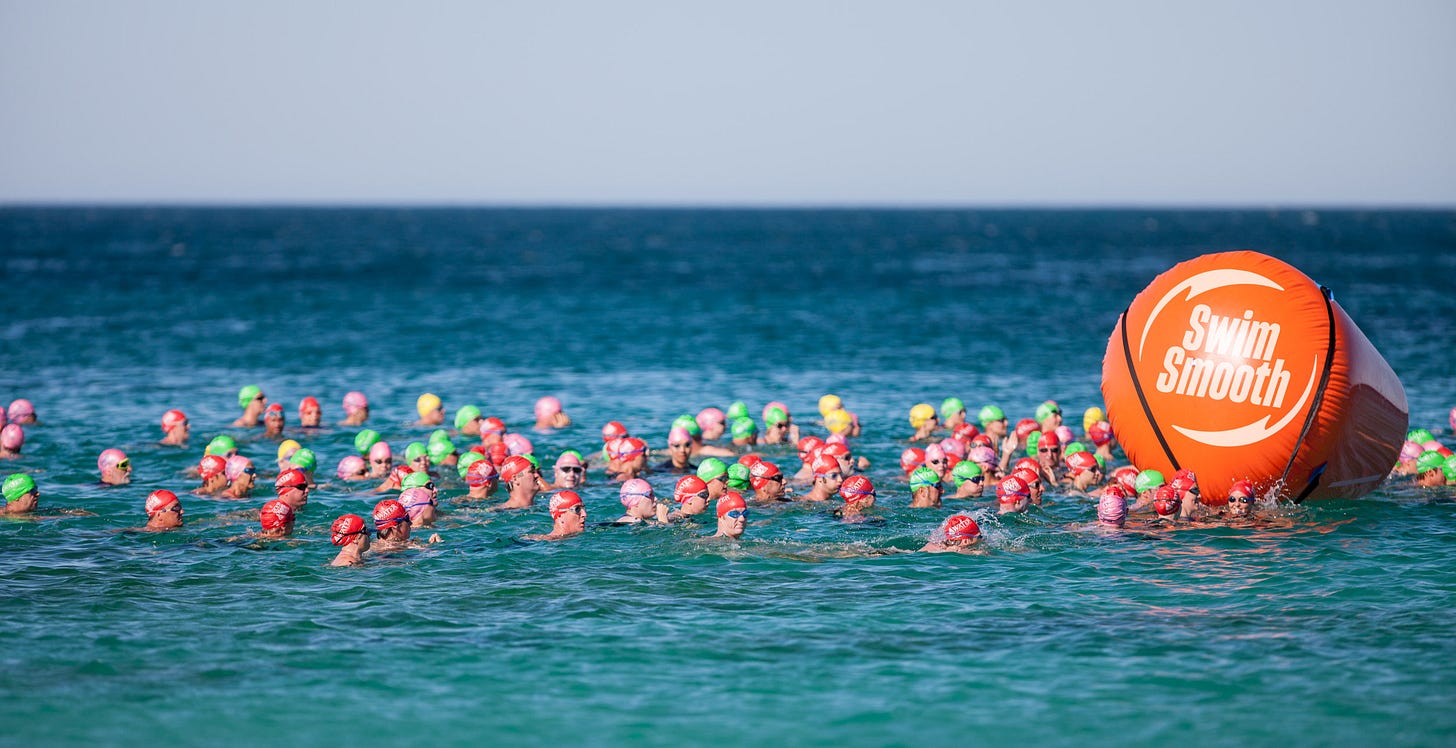What Olympic Swimmers Can Teach You
(Even If You Only Swim 2-3x/Week)
Hey Swimmers,
Following very strong demand in last week’s blog, we have just 2 spots remaining on our Swim Smooth Experience in Montenegro, 21-27 September 2025. Come and join me and my team in the Kotor Fjord for a an unforgettable week of swimming. Find out more and register here.
What Olympic Swimmers Can Teach You
You may not be training 30+ hours a week or aiming for a place on the podium, but that doesn’t mean you can’t benefit from the habits, strategies, and mindset of the world’s best swimmers.
Over the years, I’ve had the privilege of seeing elite athletes up close—including working alongside British Triathlon’s World Class Programme and coaching swimmers chasing Olympic qualification. The lessons I took from that experience aren’t just about medals—they’re about how to train smarter, more consistently, and with more purpose.
Here’s what you can learn from Olympians—whether you’re chasing your first 1500m swim, a Rottnest crossing, or simply want to feel better every time you hit the pool.
1. Consistency Beats Intensity

Olympic-level success isn’t built in 12 weeks—it’s built over years of uninterrupted training. Britain's Chris Jones, who coached me during my triathlon years, instilled one core principle: stay healthy, stay consistent.
One of my contemporaries, Tim Don, became World Junior Champion after three years without injury or illness. His consistency—not a magic session or superhuman effort—was the difference.
👉 Tip: Ask yourself, “Can I repeat this week, next week, and the week after?” If not, adjust. Consistency is king.
2. Technique Comes First—but Don’t Overthink It
Olympians are obsessed with stroke quality—but they also avoid over-analysis. Yes, swimmers like Ian Thorpe, Michael Phelps, and Rebecca Adlington made their strokes look effortless. But their form was the result of thousands of metres and hundreds of drill hours, not constant tinkering.
Good technique is critical, but paralysis by analysis will only slow you down.
👉 Tip: Aim for 80% technically “right” with 100% rhythm and fluency. You’ll swim faster than trying to be perfectly robotic.
3. Balance Your Training Like an Elite
In Olympic marathon swimming, competitors balance three key elements:
Technique refinement
Aerobic fitness
Open water-specific skills (like sighting and drafting)
Too many age-group swimmers over-focus on one of these—usually fitness—and neglect the others. The result? Inconsistent progress and limited adaptability in racing conditions.
👉 Tip: Each week, include at least one session focused on technique, one on CSS/threshold work, and one with open water skills.
4. Prioritise Rest and Recovery Like It’s Part of the Plan
Olympians often have more recovery time—not just more training time. They get massage, physiotherapy, quality sleep, and downtime between sessions. Age-group athletes, juggling full-time work and family, tend to sacrifice rest first.
👉 Tip: Don’t squeeze in “extra” sessions if it means less sleep, no mobility work, or skipped meals. Your body doesn’t get faster in the water—it gets faster when you recover.
5. Mental Preparation Matters More Than You Think
When I swam the English Channel in 2011, I didn’t have a single moment of self-doubt—even though conditions were brutal. That confidence came from solid preparation.
But I’ve also had periods in my younger racing years when mental attitude let me down—even with a fitter body. The best Olympic athletes train their minds alongside their bodies. They visualise, self-regulate, and prepare for adversity.
👉 Tip: Reflect after each session. Build routines that give you confidence. Know your plan before race day. That’s mental training.
6. Be Patient. Success Takes Time.
During the 2008 Beijing Olympics, David Davies led the 10km open water swim until the final 200m before being outsprinted by Dutch swimmer Maarten van der Weijden—a cancer survivor turned Olympic gold medallist.
Van der Weijden conserved energy in the pack for most of the race, then struck with clinical timing. The patience and control required to swim that way is a huge part of what made him champion.
👉 Tip: Apply the same patience to your own progress. Improvement comes from layers of well-executed, repeated effort—not quick fixes.
7. Plan Your Race Like a Pro
Ian Thorpe was once asked how he prepares for major events. His answer: “The same as I prepare for everything else.”
Elite swimmers don’t try something new on race day. They test their gear, pace plans, and nutrition strategies in training. They follow structure and build familiarity—so nothing feels new when it matters most.
👉 Tip: Stick with what’s proven in training. Avoid last-minute changes before key events, especially overseas races with built-in disruptions.
Final Word: Swim Like an Olympian—In Your Own Way
You may never swim in front of a packed stadium or qualify for Los Angeles 2028—but you can prepare, train, and recover with the same mindset that fuels the best in the world.
Small habits. Smart training. Consistent execution. These are the things that help Olympians rise—and they’re the exact same things that will help you become the swimmer you want to be.
Next week, we’ll break down a series of common stroke flaws and how to fix them—because Olympic form isn’t out of reach if you know where to start.
Your Coach, Paul











